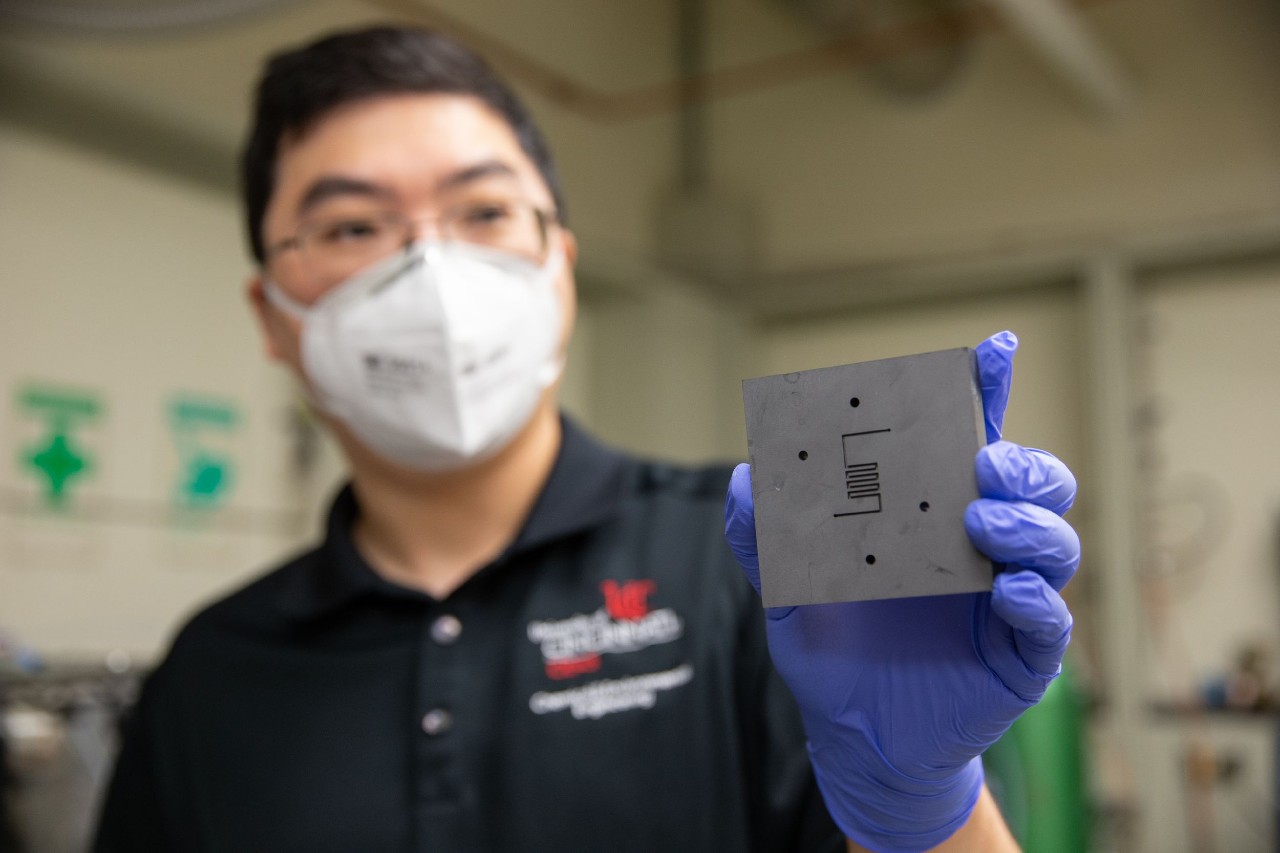
Engineering & Technology: UC engineers make rocket fuel from CO2 reactor
Jingjie Wu wants to apply new tech to climate change and space exploration
Engineering & Technology magazine highlighted research by University of Cincinnati chemical engineer Jingjie Wu that holds promise for addressing climate change and exploring space.
Wu, an assistant professor of chemical engineering in UC's College of Engineering and Applied Science, is developing new reactors that can convert carbon dioxide into a usable fuel. This could make wide-scale scrubbing of greenhouse gases from power plants and other sources more cost effective.
Wu and his students are experimenting with different catalysts to create more efficient reactors and different types of fuel.
And since the atmosphere of Mars is composed mostly of carbon dioxide, the Martian air could provide a ready source of rocket fuel for space exploration.
“Right now if you want to come back from Mars, you would need to bring twice as much fuel, which is very heavy,” Wu said. “And in the future, you’ll need other fuels. So we can produce methanol from carbon dioxide and use them to produce other downstream materials. Then maybe one day we could live on Mars.”
The latest research by Wu and doctoral student Tianyu Zhang was published in the journal Nature Communications with collaborators from Rice University, Shanghai University and East China University of Science and Technology.
Featured image at top: UC assistant professor Jingjie Wu holds up a tiny reactor in his chemical engineering lab. Photo/Andrew Higley/UC Creative + Brand

UC chemical engineering assistant professor Jingjie Wu, left and doctoral student Tianyu Zhang are experimenting with different catalysts to convert carbon dioxide to storable fuel to address climate change. Photo/Andrew Higley/UC Creative + Brand
Related Stories
9 Things OB/GYNs want women to know about early menopause
January 6, 2025
Menopause doesn't typically happen until women reach their late 40s or 50s, but some experience early onset menopause. So, Well+Good put together nine things experts want women to know about why early menopause happens, if the treatment options are any different from regular menopause, and how it affects overall health. Michael Thomas, MD, department chair and OB/GYN at the University of Cincinnati College of Medicine, offered his expertise for the article.
UC experts share holiday survival tips in local news report
January 6, 2025
One poor choice could lead to lasting health effects. That's why experts at the University of Cincinnati College of Medicine offered advice to keep everyone safe and avoid an emergency during the holiday season. From food poisoning to children swallowing a button battery, there are a lot of things that can go wrong.
Why is anxiety worse at night?
January 6, 2025
The University of Cincinnati's Jeffrey Strawn was featured in a TIME article discussing why anxiety can be worse at night and tips to address nighttime anxiety.
